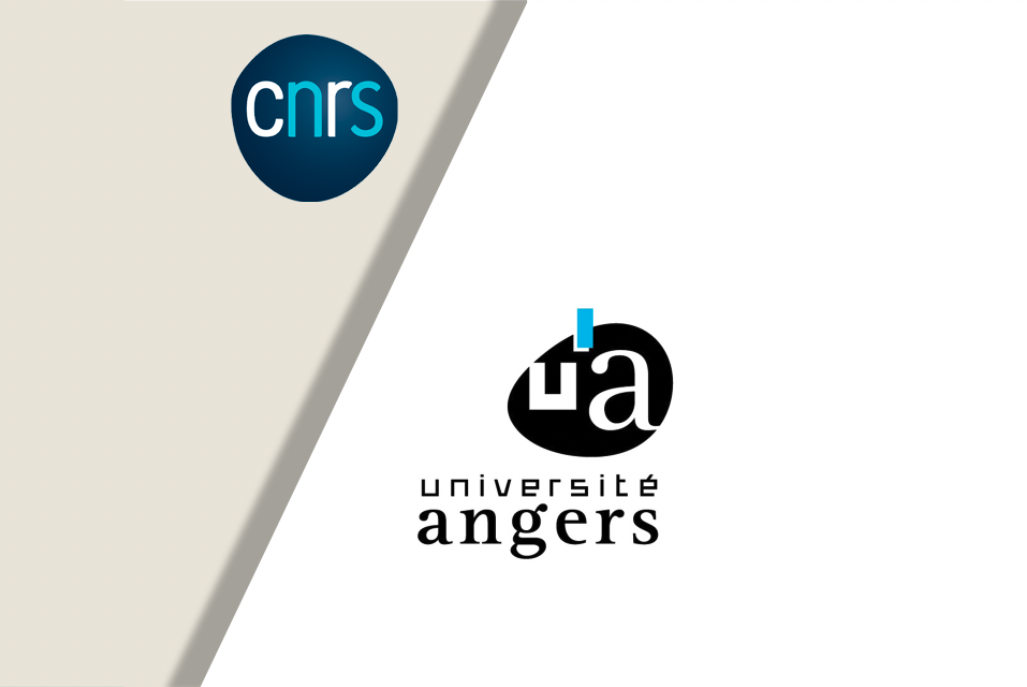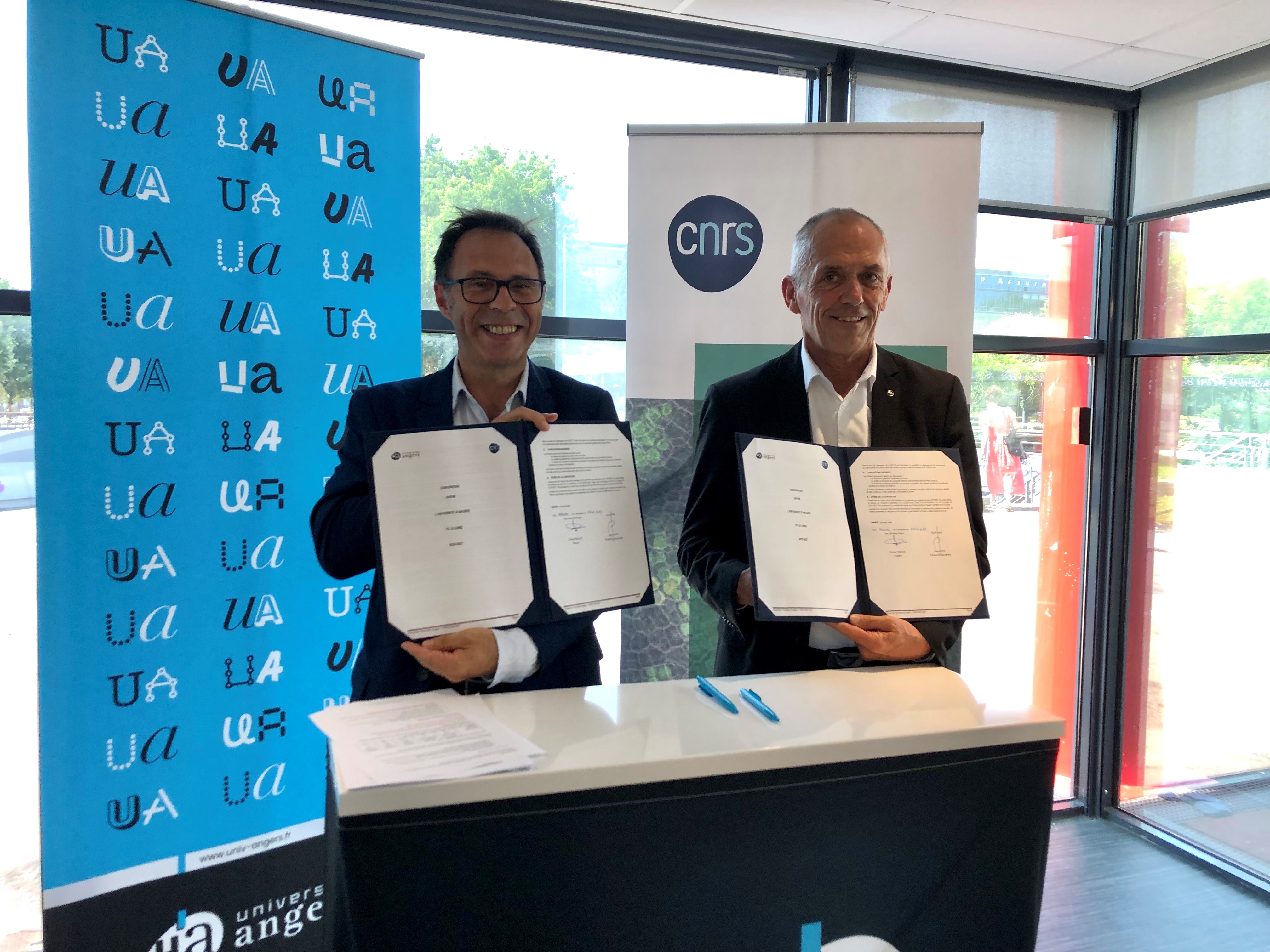
Partnership agreement between CNRS and the University of Angers for a joint scientific policy
The University of Angers and the National Center for Scientific Research wish, by virtue of this agreement, to renew their partnership and confirm their intention to support subjects that align with their common scientific priorities, namely materials science, mathematics, health, humanities and social sciences. Earth and universe sciences. This agreement pertains to 8 joint research units under joint supervision
3 research consortia, 2 support and research units and a joint research team.

In materials science, research relates to the development of organic molecular materials or hybrids of organic and inorganic, in support of highly visible fields such as organic electronics, catalytic materials, nanostructures or energy materials. Since the beginning of the 2020 academic year, the University of Angers has been operating EUR Lumomat-E, on Molecular Materials for Organic Electronics and Photonics, in partnership with the University of Nantes, the University of Rennes, the National School of Chemistry of Rennes and the CNRS.
Mathematics research focuses on real and complex algebraic geometry, algebraic topology, analysis, probability, and statistics, with applications in the life sciences and economics. It is specially organized at a regional level within the Henri Lebesgue Centre, Labex multi-site in the Pays de la Loire and Brittany regions, coordinated by the University of Rennes.
In the field of health, research is carried out with Inserm, in collaboration with the University Hospital, in the areas of mitochondrial and cardiovascular pathophysiology, precision and nanomedicine, oncology, immunology and inflammation immunology. The University of Angers is a partner with the National Center for Scientific Research of the multi-site Labex IRON – innovative radiopharmaceuticals in oncology and neuroscience as well as Labex IGO – immunotherapies and immuno-oncology, coordinated by the University of Nantes.
Highly interdisciplinary research in the humanities and social sciences addresses the historical development of individuals, knowledge, or societies, the interactions between spaces and societies, and between geography and sociology. On the Angevin site, it centers specifically around childhood and youth studies, and tourism. The University of Angers holds the scientific interest group “Tourism Studies” to which the National Center for Scientific Research belongs.
In Earth and Universe Sciences, the research, which is carried out jointly with the University of Le Mans and the University of Nantes, focuses on marine systems in transition and more specifically on coastal and coastal performance and dynamics, open marine systems and paleooceanology, with some action on the planet Earth theme.
” This new agreement will further develop our cooperation; By sharing our priorities in terms of research, innovation and international work, we will continue to carry out basic research in the service of society This is stated by Antoine Petit, President and CEO of CNRS.
For Christian Robledo, Rector of the University of Angers, “This agreement signed for 6 years between our university and the National Center for Scientific Research represents our commitment to develop a sustainable site policy in research and training but also in innovation. This strategic partnership focuses on scientific topics that cover our five research centers. It is an acknowledgment of the work our teams have done and the value of our research educators, some of whom have just been appointed to the Institut Globale de France, which I am very pleased about.”
This agreement will also govern the human and financial resources of the laboratories, the movement of scientists, the reception of students, as well as open science, partnership activities, sustainable development, and gender issues.
More than 300 permanent employees of the CNRS and the University of Angers are concerned.

“Organizer. Social media geek. General communicator. Bacon scholar. Proud pop culture trailblazer.”
